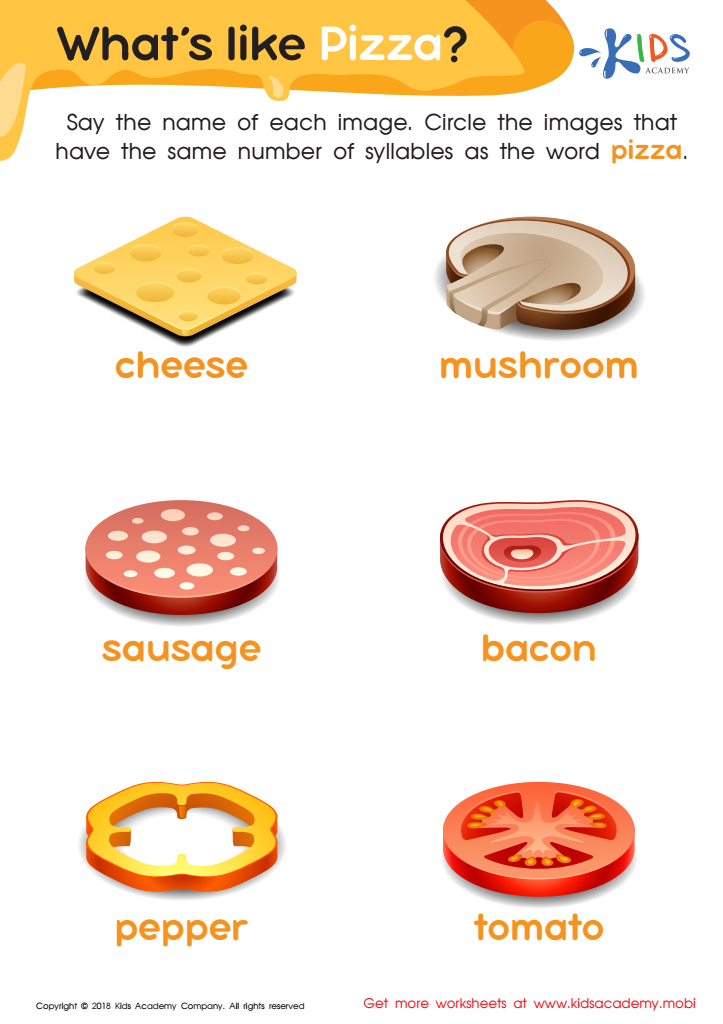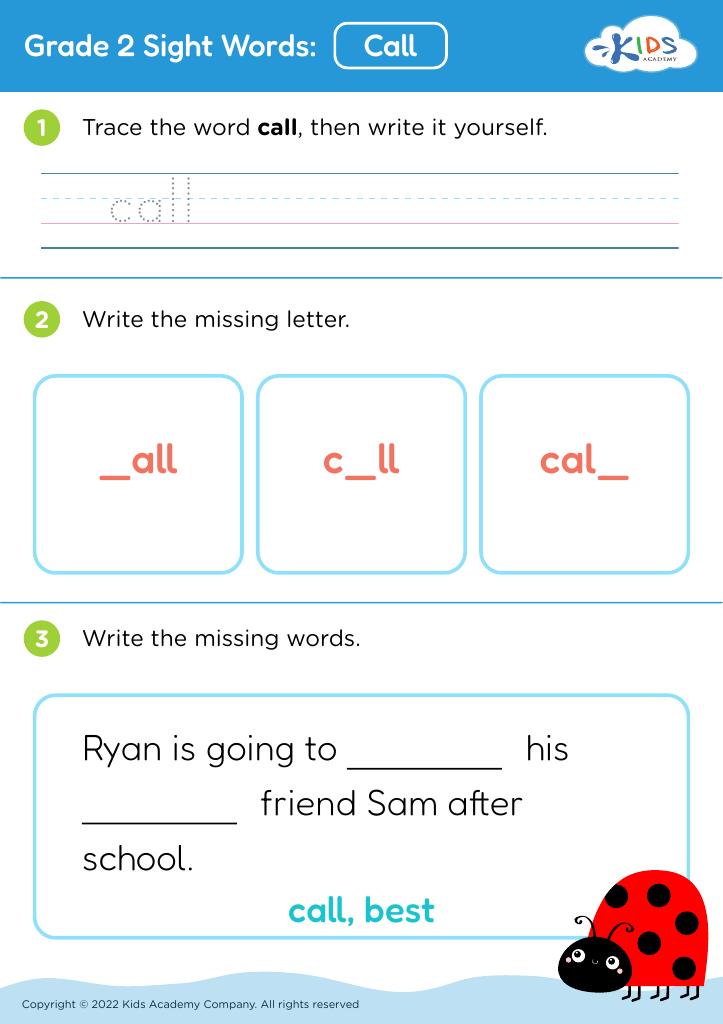Fraction comparison Building Vocabulary Worksheets for Ages 7-8
6 filtered results
-
From - To
Explore the engaging world of fraction comparison with our specially designed building vocabulary worksheets for ages 7-8. These worksheets help young learners grasp fundamental concepts and master the terminology essential to compare fractions effectively. Created to enrich students' learning experiences, these exercises cover essential vocabulary related to numerators, denominators, and the comparison symbols greater than, less than, and equal to. Perfect for both classroom and home use, our worksheets flexibly support various learning styles, ensuring learners build confidence and proficiency in math. Empower your child’s math journey and foundational learning with Kids Academy’s expertly crafted resources.


What's Like Pizza? Worksheet
At ages 7-8, children are forming essential cognitive skills that serve as the foundation for future learning, making this an ideal time to introduce fundamental mathematical concepts like fractions. Fraction comparison is a critical component of this early education. When parents and teachers focus on building vocabulary related to fractions, they foster not just mathematical understanding but also overall language development.
Understanding terms like "numerator," "denominator," "greater than," "less than," and "equivalent" aids children in grasping the complexities of fractions. A solid vocabulary helps children articulate their thought processes, paving the way for effective problem-solving and logical reasoning. As they use and hear these terms, they start to visualize mathematical concepts better, making abstract ideas more concrete and understandable.
Additionally, strong fraction vocabulary emphasizes precision and clarity, which are important skills in many aspects of learning and communication. For example, recognizing that 1/2 is greater than 1/3 despite the numbers seeming smaller helps children develop a more nuanced understanding of quantities and comparisons, benefiting both their mathematical capabilities and general analytical skills.
Involvement from parents and teachers through consistent vocabulary reinforcement and practical examples can lead to more confident students who are well-prepared for advanced mathematical concepts. Regular practice and engaging activities around fraction vocabulary build a strong, collaborative learning environment, essential for nurturing lifelong numeracy skills.

 Assign to My Students
Assign to My Students





















